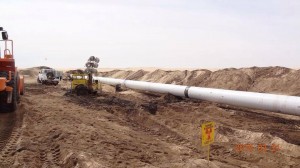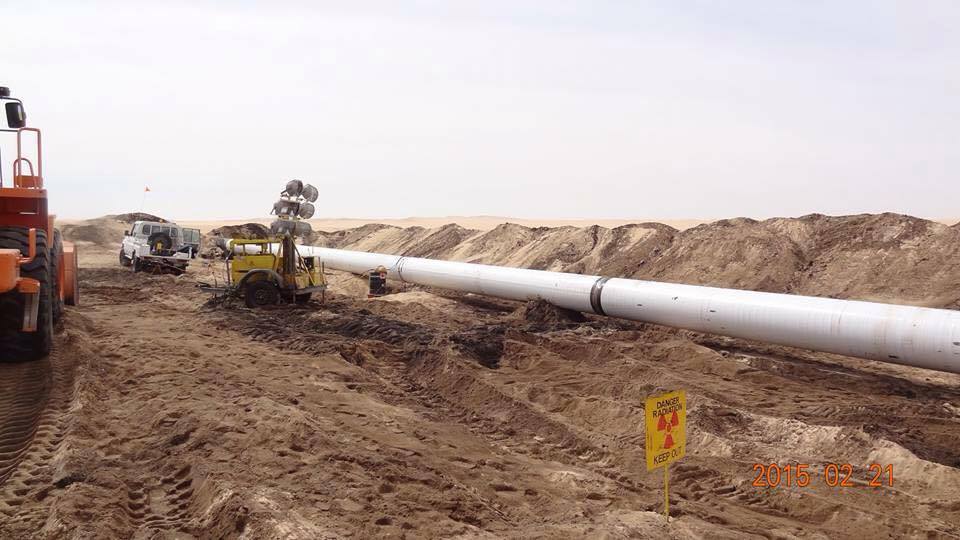By Jamal Adel.

Tunis, 22 February 2015:
The Arabian Gulf Oil Company, AGOCO is seeking to use realtime satellite surveillance to try and better . . .[restrict]protect the Sarir pipeline which was blown up eight days ago, halting key oil exports.
Mohammed Belgassem Ben Shatwan told the Libya Herald today that in order to protect the line from the Sarir field, the company’s largest, to the Hariga oil export terminal at Tobruk, “We are now calling calling several international specialists in providing this sort of satellite monitoring for the pipeline”.
Some 30 metres of the line were destroyed in a blast on 14 February. A second unexploded device was found later by the Petroleum Facilities Guard and disabled by Army engineers. The crippling of the pipeline meant that virtually all onshore production ceased, with only some 80,000 b/d being produced from the country’s two offshore fields.
AGOCO has said that up to ten days will be needed to test the pipeline once repairs have been completed.
Once in place, real-time satellite surveillance of the pipeline might mean that members of the PFG could be directed to intercept would-be attackers. It may also mean that those responsible for successful sabotage can be tracked. After the blast earlier this month, IS terrorists were initially blamed. However, it has since been suggested that local tribesmen may have been responsible.
Meanwhile Reuters has reported the successful loading of the first tanker in just under a year at the Zuetina terminal. The agency quoted an unnamed source as saying that a Greek-registered vessel had taken on 750,000 barrels of oil and was due to leave for Italy later today.
The Zuetina terminal has a 17-tank farm which may have been full enough to load the tanker. However, the terminal has been blighted by technical problems as well as strikes at two of its feeder fields, which it is said, have now been resolved.
[/restrict]








